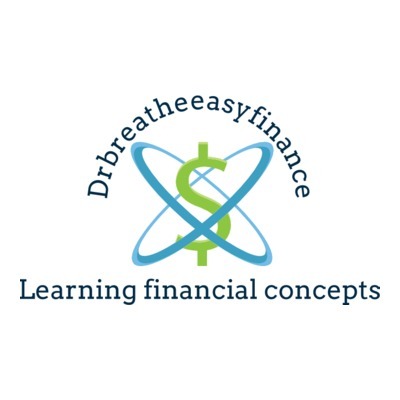When Mollie and Lejla look in their rear view mirror, they see tremendous debt. $140k of student loans, 5 figure consumer credit debt, and a mortgage that would make some people cry. The realization that life was passing them by without spending time doing what they wanted to do, rather than what they NEEDED to do was enough to spark a change.
They joined the FIRE movement and frugality. Now the pair spend their time sprinkling nuggets of frugal wisdom into the web with a bit of sarcasm and humor. Check out more at The Frugal Wallet.
Table of Contents
What do you do for a living?
Mollie currently works as corporate counsel, negotiating contracts for a software company.
Lejla is a stay at home mum (SAHM) with our daughter, operates a dog watching business, and provides some part-time remote support for a law firm as a patent paralegal.
Do you have a degree and are you currently using your degree?
We both have law degrees, which Mollie is using and Lejla is not using professionally – however, negotiating with a toddler requires skills even law school couldn’t prepare us for.
negotiating with a toddler requires skills even law school couldn’t prepare us for. Share on X
How long have you worked in your field and what is your current salary range? Only if you want to, however, it is better to give our readers some perspective. If they are low-income earner vs high-income earner, the strategies might differ.
Mollie has been working professionally for 13 years, but in the legal profession for about 7 of those years.
We hold our personal financial numbers a little close to the chest, but we would be considered high-income earners compared to the national average.
What major debt have you paid off that you feel is a hurrah moment for you?
Over the course of our relationship, we’ve paid off somewhat significant consumer debt (credit cards ~ $10,000 – twice) and more significantly we recently paid off all of our student loan debt – totaling roughly $140k, paid off in about 4 years.
Hurrah moment - we recently paid off all of our student loan debt – totaling roughly $140k, paid off in about 4 years. Share on X
Describe to us in detail, the strategies you used to pay off that/those debt(s)
The overall strategy was to challenge everything we considered “normal” in life.
We were used to living in a large home that we were very proud of. After all, the Joneses sure seemed to be impressed by it…
Once we got used to the idea of downsizing our house, we jumped on board with downsizing our car ownership to just one car.
We moved into a 2 bedroom apartment for a year to lower our monthly housing expenses.
After those large adjustments, we started to challenge ourselves on smaller items.
We started doing zero spend months to limit our expenses.
In addition, we started to look very hard into side hustles and eventually settled on dog watching.
We had fostered animals for years and realized that we could have dogs in our home and actually get paid for it!
We’ve been able to make between $500-1000 per month on that side hustle.
With each of these gains, we applied surplus to student loan debt. Equity from our mortgage – boom – a large chunk came out of the debt.
Proceeds from selling the car – same thing. Extra money each month from living the apartment life, towards loans.
Dog watching money? Extra principal payments.
It was slow going, but in hindsight, it was over in a flash! 4 years to pay off debt that took us nearly a decade to accumulate. Not too bad at all, to be honest.
4 years to pay off debt that took us nearly a decade to accumulate. Not too bad at all, to be honest. Share on X
Do you have any other debt left? What kind of debt? What are your goals to pay off this debt?
Our only remaining debt is our mortgage. We have a number of developing strategies around that.
Naturally, some people are of the mind that mortgage debt isn’t all bad and that you should maximize your investment portfolio before even considering paying off the mortgage.
We, however, believe that paying off/paying down the mortgage will help us reduce our monthly expenses which will help push us into FI earlier.
Example: let’s say we bring home $4,000 per month and our mortgage is $1,500 (fake numbers here, folks). Maybe the rest of our expenses total $1,500. Our total expenses are $3,000.
We’re living pretty comfortably within our means and we’re actively paying off debt.
Let’s further pretend that we pay down the mortgage to a point where we can refinance and our monthly obligation is only $500. Same expenses otherwise, so we only need $2,000 to survive.
If we keep this really simple math and logic (ignoring so many other factors that throw confusion on the pile), we could cut down our working hours and only work part-time.
All of that goes to say, we are of the mindset to actively pay off our mortgage, but we have other goals to reach first.
They include maxing out our tax-advantaged accounts, building up a 6-month emergency fund and making regular contributions to a taxable brokerage account.
For now, we are letting the dust settle from paying off student loans and evaluating the best approach to knocking the mortgage off…but it certainly is on the to-do list.
Do you budget? Why or why not? Which method do you use?
This is an interesting question. We do budget, sort of. We have started to follow a semi-strict budget for food-related expenses – eating out and grocery shopping.
We were noticing that way too much money was going up in smoke due to the food that we ate (or didn’t even eat!).
This was something we wanted to focus on pretty intensively to get back in gear.
Otherwise, we don’t budget obsessively each month. We try to live reasonably and keep a general plan in mind on how much we spend on things like gas, utilities, presents, homeschooling materials, etc.
But if we go over on any expense, it’s not something that we track or stress over.
Why don’t we budget? Well, I suppose 1) it’s too much work for me to care about and 2) I stress enough as it is, I don’t need more stress on spending $7 extra dollars on a haircut.
check out our 10 limitations to budgeting, you will find out if budgeting is right for you.
We have found what provides us the right amount of control with our expenses while not diminishing our joy too much.
We’ve read too many horror stories about people obsessively restricting in pursuit of FI that we choose to let our hair down a bit with regards to strict budgeting.
What percentage of your monthly income do you save?
This is another great question that is hard to provide an appropriate answer for.
There are so many ways to figure out your savings rate. Some people include mortgage payments in their savings rate, so I never know how to exactly answer this.
Based on some very loose calculations, I believe that we save around 40% of our income. Our math is based on takehome pay, not gross wages.
Our calculation is based loosely on the following:
(401k and IRA contributions + contributions to kid’s brokerage account fund + excess debt reduction payments)/ Take Home Pay
Do you have any passive income sources?
Yes, we have dividend bearing investment accounts, but those are reinvested currently, so we don’t realize the passive income from those.
If you can count the blog as passive (haha!) we have a whopping $4/month rolling in on average.
Good start haha. Adsense i suspect. Many people make zero, so it is only a matter of time after you draw your first blood – a.k.a made your first few dollars.
Do you rent or own your own home /condo/apartment?
We own our home.
Which side of the argument are you in terms of paying off mortgage vs investing?
I kind of got into this one before, so refer to the above for more details.
High-level summary, we are totally for paying off the mortgage, but we don’t completely forego investing in pursuit of that.
We’re somewhere in the middle of those two competing priorities.
You can check out our best performing article on what we think about paying off mortgage – Dave Ramsey is outdated, try out 12 toddler steps to financial freedom instead.
Yet another awesome episode of our get out of debt series.
Please share and comment below.
If you are still in debt, here is a cool debt tracker spreadsheet that can help you get out of debt faster. I really wish I had this when we were paying off our debt, it would have made our lives so much easier.

Here is the link to binge on all the get out of debt series
Other posts in the series include
Financial independence African style – How to pay off $35,000 debt in one year!!
Xrayvsn crawled out of $600,000 debt and the worst divorce in history and still managed to reach financial freedom.
From one Geek To Another became debt free at a tender age of 27.
Money Saved Is Money Earned is the master in stretching that dollar. Low income did not stop him from getting out of debt.
How We Paid Off $340,000 Mortgage In 3 Years By Saving 86.5% Of Our Income (By HisHerMoneyGuide)
Wealthy Doc became financially independent in 17 years after starting his real job.
Marc from Vital Dollar paid off his 30 years mortgage in just 4 years.
Millionaire Mob, a guru investor showed us how to get out of debt.
The frugal fellow lived with his parents to pay off debt and he is not ashamed of it
Check out some of the tricks we used to pay off over $200,000 student loan debt by 6 months out of training.
5 strategies to pay off $55,000 debt In 4.5 Years by Spills Spot
I am a pulmonary and critical care doctor by day and personal finance blogger/debt slaying ninja by night.
After paying off close to $300,000 in student loan debt in less than 6 months into my real job, I started on a mission to help others achieve the same. There is no magic to this than to strap up and get it done. Some of the ways we achieved this include side hustle, budgeting, great negotiation skills, and geographical arbitrage.
When I was growing up, common knowledge in Nigeria is that there is one thing you cannot trust anyone else with, and you guessed it – your money.
Being frugal came easily to me based on my background. However, the concept of building wealth did not solidify in my mind until when I finished medical school. I wish I knew what I know now when I was 14. Still, I don’t know enough and I am constantly learning to improve my knowledge.
My goal is to reduce financial illiteracy among young professionals. I am catering to the beginners – babies and toddlers in financial literacy.








Leave a Reply